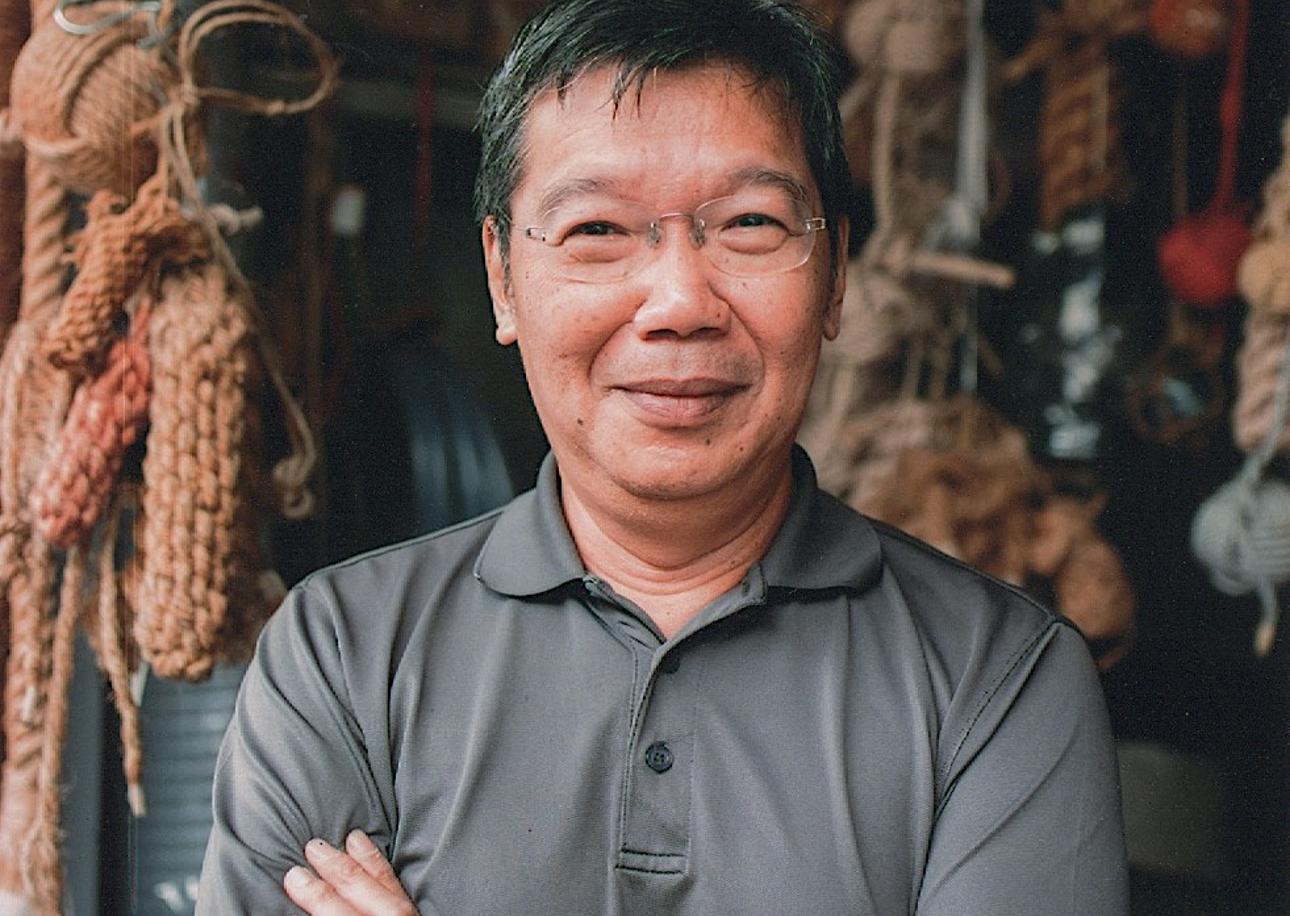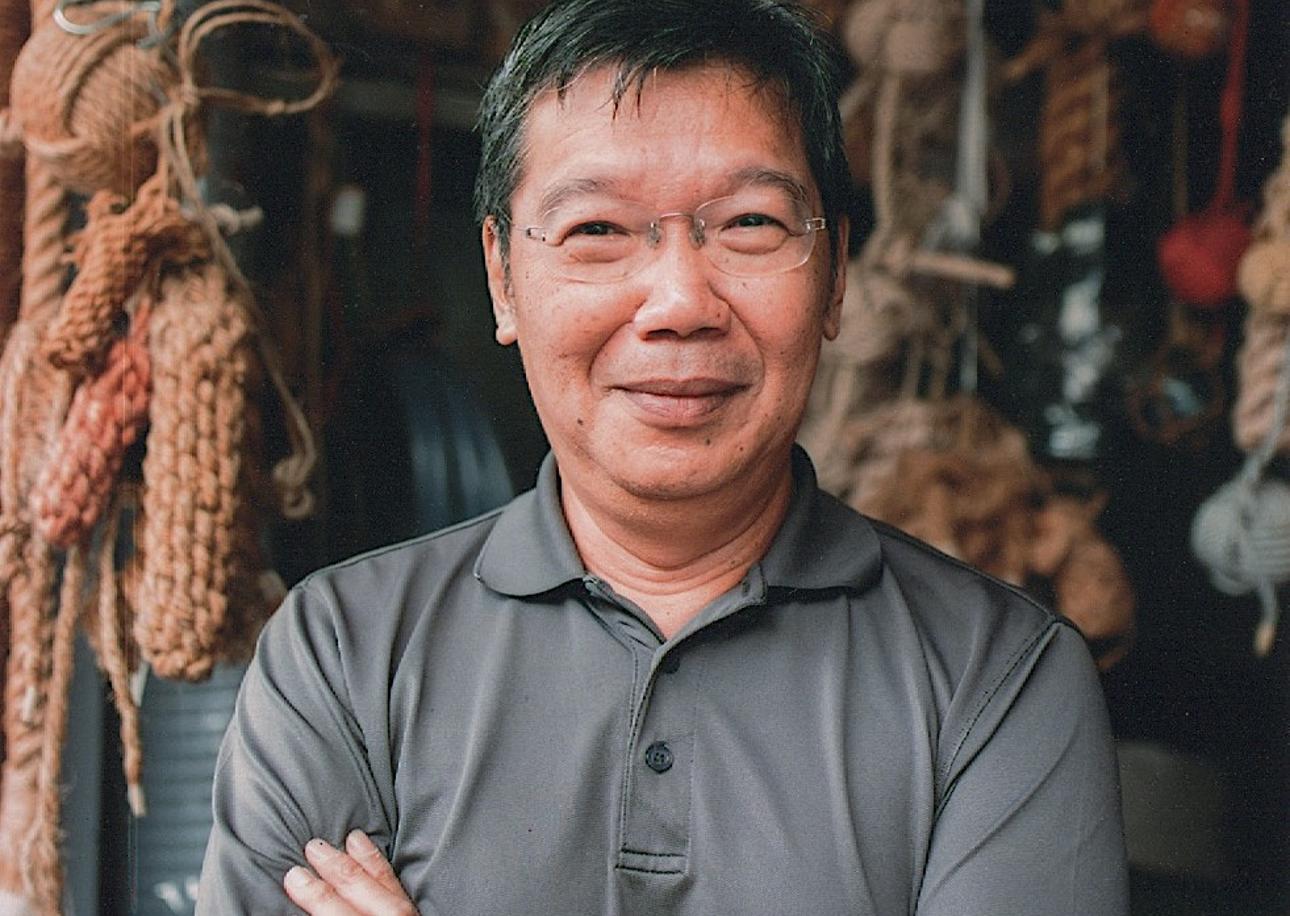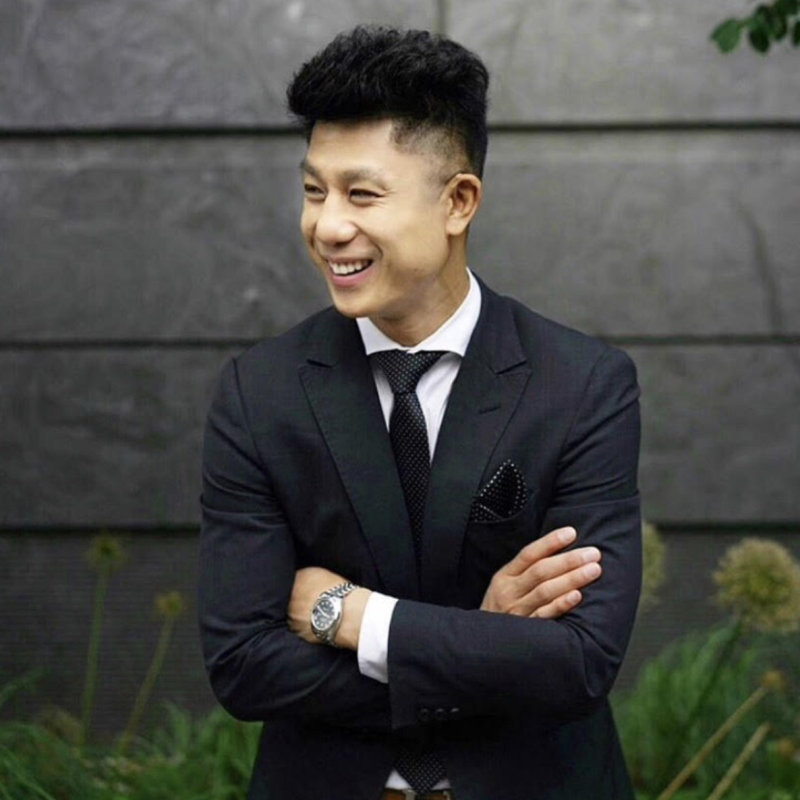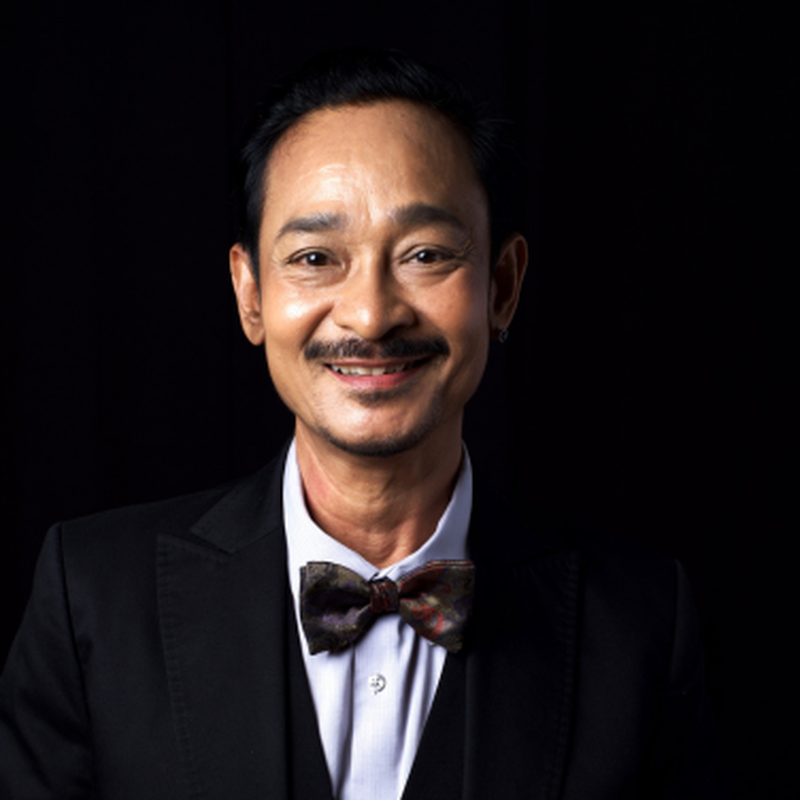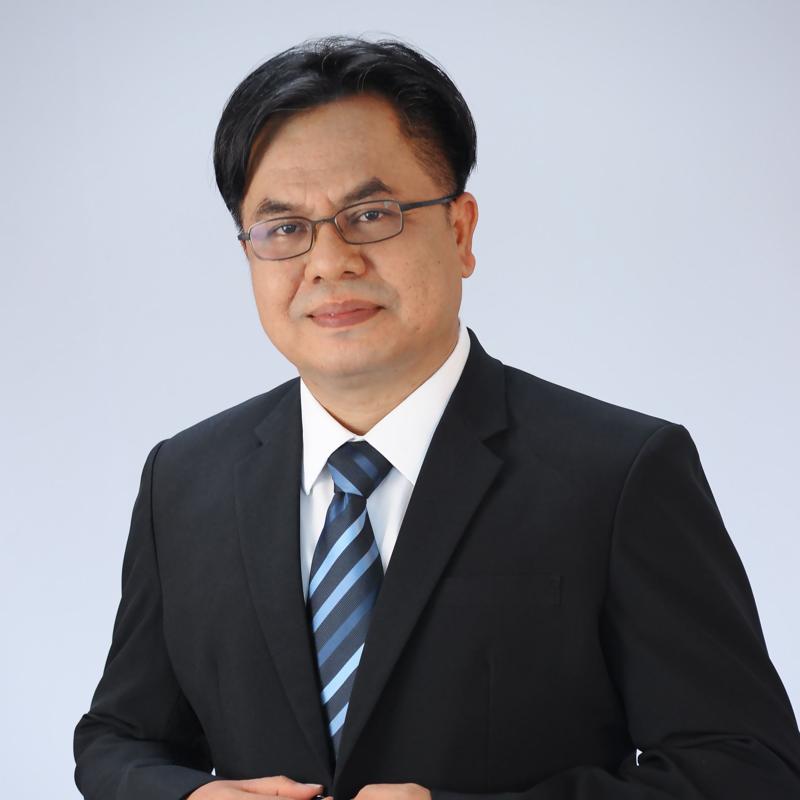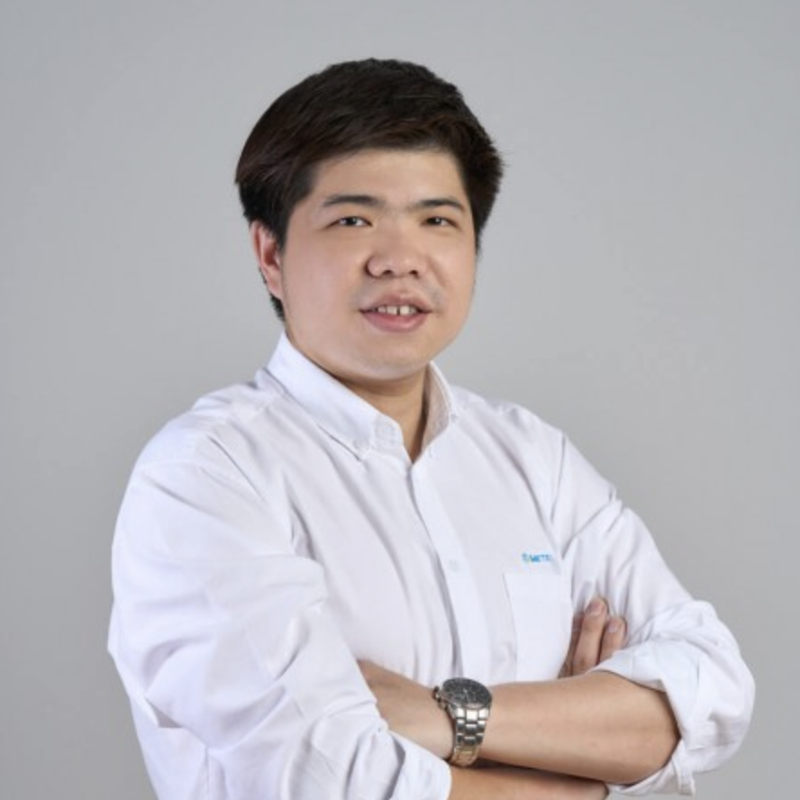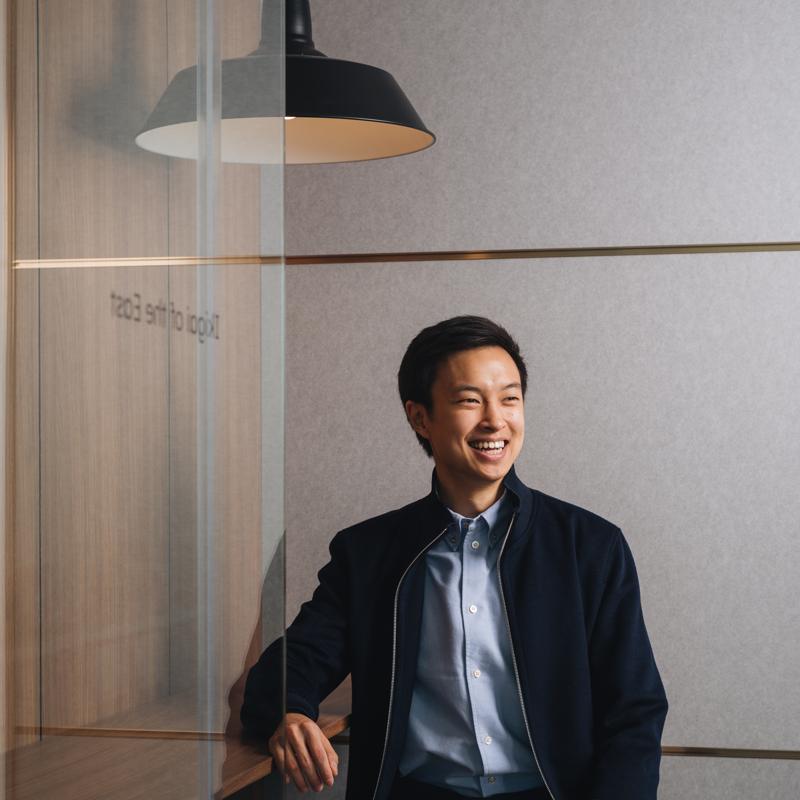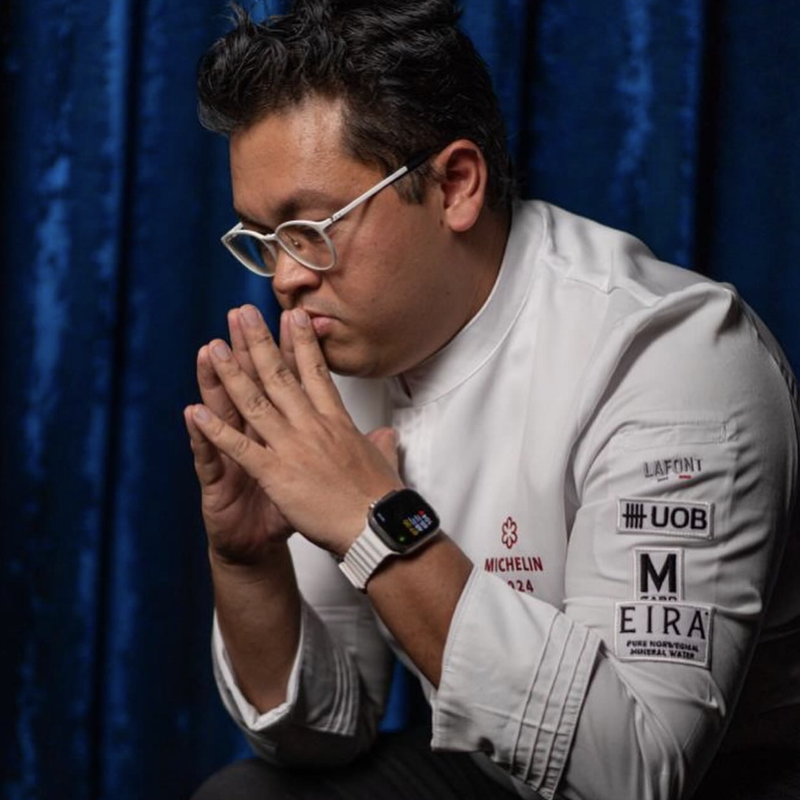Somchai Kwangtongpanich a business owner- and an expert on the history of Bangkok’s Chinatown.
Somchai Kwangtongpanich is a business owner in Bangkok’s iconic Chinatown. Somchai owns KONGKASEM (1959) CO LTD, a wholesaler of nets and ropes. On top of his successful business, Somchai is widely regarded as a community historian.
Somchai, 60, grew up at a time when it wasn’t exactly cool to consider yourself a foreigner in Thailand.
“At that period maybe Communist China was the enemy,” Somchai told Koktail. “I was born 60 years ago during the Vietnam war, the Cold War. The message we received from the media was that America loved Thailand, and I wanted to be American.”
Somchai developed an interest in the history of his Chinatown community after his mother died. His mother’s death sent him on a path of rediscovering his Chinese culture and history, leading him to a new appreciation for his community’s history, as well as for how Chinese culture has helped him in business.
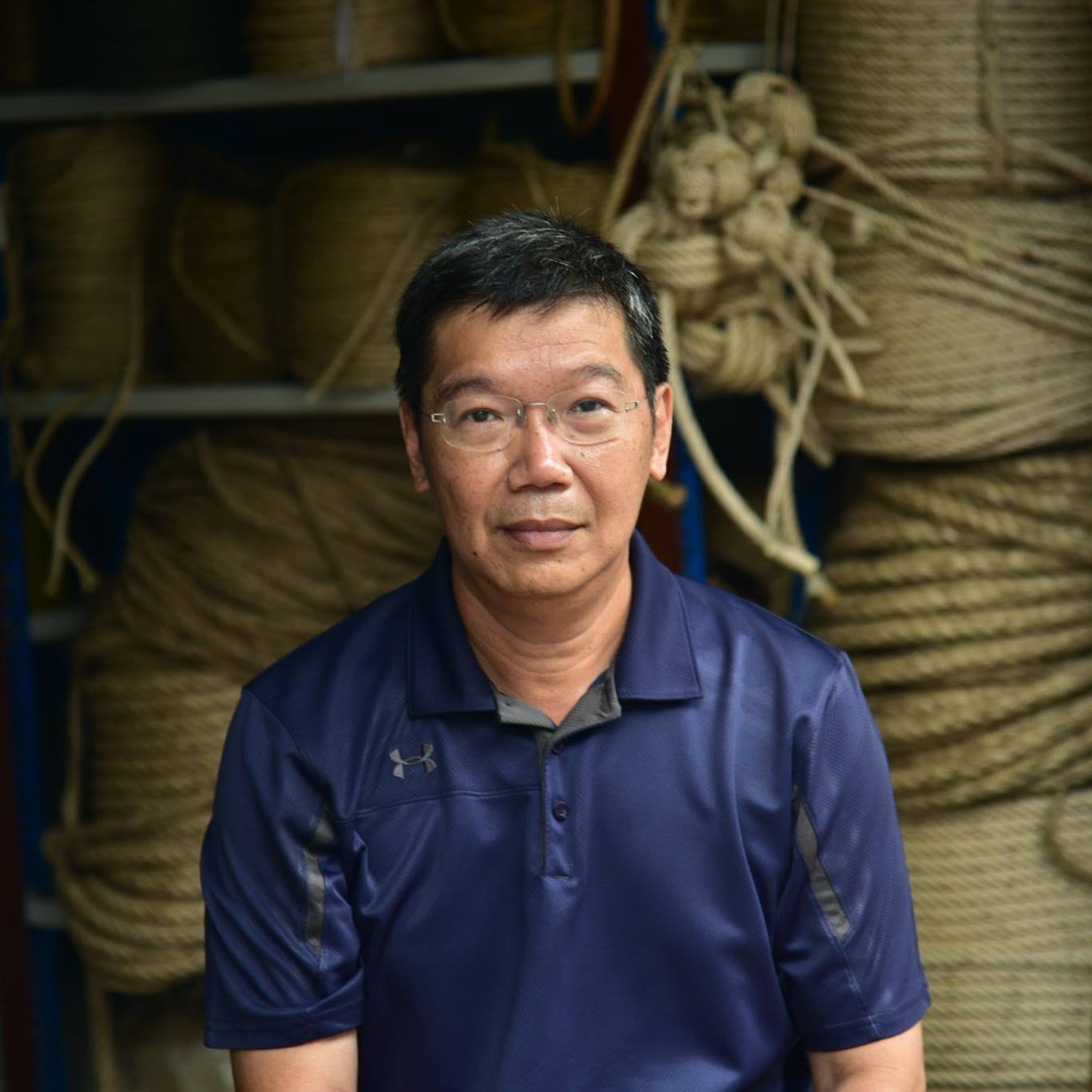
“Thirty years ago, I was 30, and at that time my mom passed away. So I tried my best to emulate everything in Chinese culture the same as her especially Chinese festivals.”
Somchai dove deep into history by reading books and examining all kinds of documents, including old photos and maps comparing these to photos available online.
In 2016, Somchai gave a talk at TedxBangkok arguing that anyone can be a historian.
(Watch the video below to hear Somchai’s talk, with subtitles included.)
Somchai’s knowledge of Chinese culture has not only helped him understand history. He says it has also made him a stronger business owner.
“I think the Chinese philosophy is very awesome,” Somchai said. “It teaches us to practise with ourselves all the time, that we must be strong and improve ourselves. It teaches a lot for business.”
KONGKASEM is a family business that was passed down to Somchai. The story of his family business is itself a fascinating insight into the history of Chinese migration to Bangkok.
“My grandfather made hemp spring rope in Ayutthaya province, it’s a natural fibre. And my dad followed my grandfather making the hemp spring rope, they moved from Ayutthaya to Bangkok to open the shop in the Sampaeng area, that’s now my business here,” he said. “After I graduated I came to look after the shop.”
Somchai works as a special professor at King Mongut University of Technology Thonburi (KMUTT). He says that when discussing Chinatown’s history with students, he tells them he is not only there to teach but also to learn from them. His students are sometimes afraid to share their ideas, but when they do it makes him think about things he has never considered before.
“Why is that banner like this? Why does the food look like this? Many questions that I’ve never thought about before. So I’d say I learn from them more than I teach them,” he said.
Somchai says that one difference between Chinatown’s younger generation and its older ones is that a temple might have been very important to his grandfather, but to the younger generation, it’s just “a very interesting place,” he said.
“They only come to take a look. They don’t come to pray or eat vegetarian food.”
